#Torbert
Explore tagged Tumblr posts
Text

1970 Novato Ranch
8 notes
·
View notes
Text

Willie Torbert


2 notes
·
View notes
Text

Torbert Oscillator is an inventor and shock trooper of the Assembly.
The Assembly faction has never leaned so heavily into assault as they do support, but Torbert's own inventions were so remarkable and effective there was no option but to put him in the front lines. With an electric rifle, lightning fields, and his little Battle Electrifier Entity drone, Torbert is a very tough soldier.
And to think such a powerful trooper has such a soft spot for bees...
5 notes
·
View notes
Text
well imma be a murder podcaster living in the arconia ✌🏻
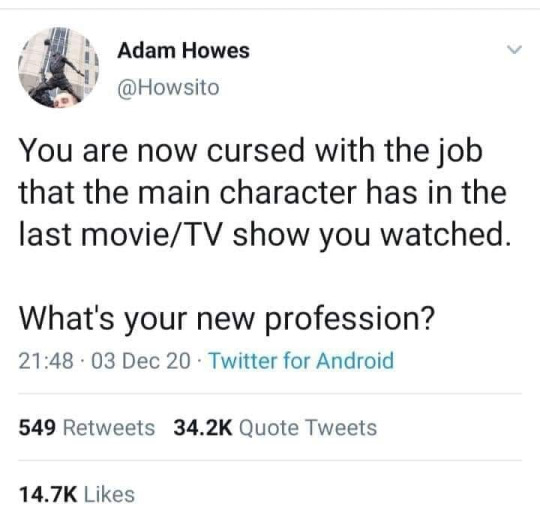
#only murders in the building#mabel mora#oliver putnam#charles haden savage#murder mystery#torbert can get it
272K notes
·
View notes
Text
GLOWZIES Sci-fi comedy horror - review - free on Roku, Tubi, YouTube
‘Earth’s up, dude’ Glowzies is a 2023 sci-fi comedy horror film about a group of military vets and influencers battling glowing zombies. The movie was directed, co-edited and co-produced by Hank Braxtan (Jurassic Hunt; Dragon Soldiers; Snake Outta Compton; Unnatural; Chemical Peel; Blood Effects) from a screenplay co-written with Guy J. Jackson. It was produced by Arielle Brachfeld, Kevin Brooks,…
#2023#Antuone Torbert#free on YouTube#Glowzies#Hank Braxtan#James Remar#Josie Davis#Michael Dorn#movie film#review reviews#Ron Carlson#sci-fi comedy horror#trailer
0 notes
Text
Ron Torbert was the ref for our Super Bowl and the AFC Championship game we lost in KC. Questionable calls against us in both games. I'm afraid Bengal fans would have ended it all before the game even started if we would have made the Super Bowl this year. 😭

8 notes
·
View notes
Text
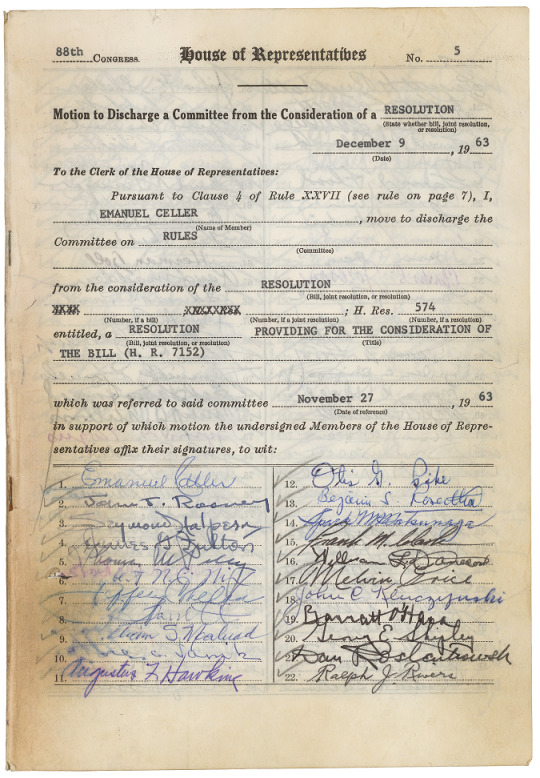
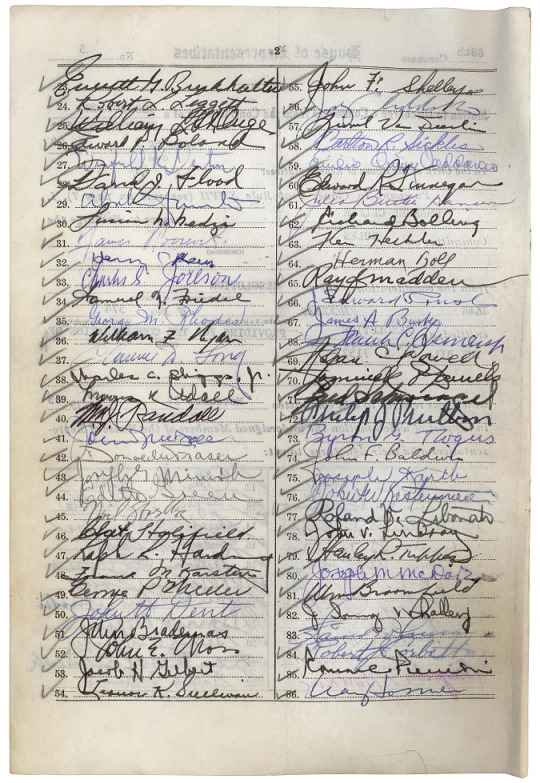
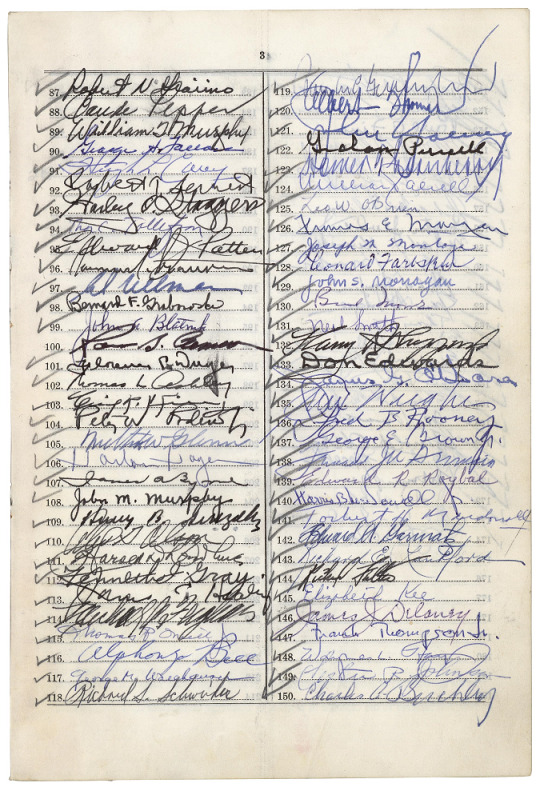

Discharge Petition for H.R. 7152, the Civil Rights Act of 1964
Record Group 233: Records of the U.S. House of RepresentativesSeries: General Records
This item, H.R. 7152, the Civil Rights Act of 1964, faced strong opposition in the House Rules Committee. Howard Smith, Chairman of the committee, refused to schedule hearings for the bill. Emanuel Celler, Chairman of the Judiciary Committee, attempted to use this discharge petition to move the bill out of committee without holding hearings. The petition failed to gain the required majority of Congress (218 signatures), but forced Chairman Smith to schedule hearings.
88th CONGRESS. House of Representatives No. 5 Motion to Discharge a Committee from the Consideration of a RESOLUTION (State whether bill, joint resolution, or resolution) December 9, 1963 To the Clerk of the House of Representatives: Pursuant to Clause 4 of Rule XXVII (see rule on page 7), I EMANUEL CELLER (Name of Member), move to discharge to the Commitee on RULES (Committee) from the consideration of the RESOLUTION; H. Res. 574 entitled, a RESOLUTION PROVIDING FOR THE CONSIDERATION OF THE BILL (H. R. 7152) which was referred to said committee November 27, 1963 in support of which motion the undersigned Members of the House of Representatives affix their signatures, to wit: 1. Emanuel Celler 2. John J. Rooney 3. Seymour Halpern 4. James G Fulton 5. Thomas W Pelly 6. Robt N. C. Nix 7. Jeffery Cohelan 8. W A Barrett 9. William S. Mailiard 10. 11. Augustus F. Hawkins 12. Otis G. Pike 13. Benjamin S Rosenthal 14. Spark M Matsunaga 15. Frank M. Clark 16. William L Dawson 17. Melvin Price 18. John C. Kluczynski 19. Barratt O'Hara 20. George E. Shipley 21. Dan Rostenkowski 22. Ralph J. Rivers[page] 2 23. Everett G. Burkhalter 24. Robert L. Leggett 25. William L St Onge 26. Edward P. Boland 27. Winfield K. Denton 28. David J. Flood 29. 30. Lucian N. Nedzi 31. James Roosevelt 32. Henry C Reuss 33. Charles S. Joelson 34. Samuel N. Friedel 35. George M. Rhodes 36. William F. Ryan 37. Clarence D. Long 38. Charles C. Diggs Jr 39. Morris K. Udall 40. Wm J. Randall 41. 42. Donald M. Fraser 43. Joseph G. Minish 44. Edith Green 45. Neil Staebler 46. 47. Ralph R. Harding 48. Frank M. Karsten 49. 50. John H. Dent 51. John Brademas 52. John E. Moss 53. Jacob H. Gilbert 54. Leonor K. Sullivan 55. John F. Shelley 56. 57. Lionel Van Deerlin 58. Carlton R. Sickles 59. 60. Edward R. Finnegan 61. Julia Butler Hansen 62. Richard Bolling 63. Ken Heckler 64. Herman Toll 65. Ray J Madden 66. J Edward Roush 67. James A. Burke 68. Frank C. Osmers Jr 69. Adam Powell 70. 71. Fred Schwengel 72. Philip J. Philiben 73. Byron G. Rogers 74. John F. Baldwin 75. Joseph Karth 76. 77. Roland V. Libonati 78. John V. Lindsay 79. Stanley R. Tupper 80. Joseph M. McDade 81. Wm Broomfield 82. 83. 84. Robert J Corbett 85. 86. Craig Hosmer87. Robert N. Giaimo 88. Claude Pepper 89. William T Murphy 90. George H. Fallon 91. Hugh L. Carey 92. Robert T. Secrest 93. Harley O. Staggers 94. Thor C. Tollefson 95. Edward J. Patten 96. 97. Al Ullman 98. Bernard F. Grabowski 99. John A. Blatnik 100. 101. Florence P. Dwyer 102. Thomas L. ? 103. 104. Peter W. Rodino 105. Milton W. Glenn 106. Harlan Hagen 107. James A. Byrne 108. John M. Murphy 109. Henry B. Gonzalez 110. Arnold Olson 111. Harold D Donahue 112. Kenneth J. Gray 113. James C. Healey 114. Michael A Feighan 115. Thomas R. O'Neill 116. Alphonzo Bell 117. George M. Wallhauser 118. Richard S. Schweiker 119. 120. Albert Thomas 121. 122. Graham Purcell 123. Homer Thornberry 124. 125. Leo W. O'Brien 126. Thomas E. Morgan 127. Joseph M. Montoya 128. Leonard Farbstein 129. John S. Monagan 130. Brad Morse 131. Neil Smith 132. Harry R. Sheppard 133. Don Edwards 134. James G. O'Hara 135. 136. Fred B. Rooney 137. George E. Brown Jr. 138. 139. Edward R. Roybal 140. Harris. B McDowell jr. 141. Torbert H. McDonall 142. Edward A. Garmatz 143. Richard E. Lankford 144. Richard Fulton 145. Elizabeth Kee 146. James J. Delaney 147. Frank Thompson Jr 148. 149. Lester R. Johnson 150. Charles A. Buckley4 151. Richard T. Hanna 152. James Corman 153. Paul A Fino 154. Harold M. Ryan 155. Martha W. Griffiths 156. Adam E. Konski 157. Chas W. Wilson 158. Michael J. Kewan 160. Alex Brooks 161. Clark W. Thompson 162. John D. Gringell [?] 163. Thomas P. Gill 164. Edna F. Kelly 165. Eugene J. Keogh 166 John. B. Duncan 167. Elmer J. Dolland 168. Joe Caul 169. Arnold Olsen 170. Monte B. Fascell [?] 171. [not deciphered] 172. J. Dulek 173. Joe W. [undeciphered] 174. J. J. Pickle [Numbers 175 through 214 are blank]
40 notes
·
View notes
Text
What is it Torbert says about truth and justice? Oh, we dedicate ourselves daily anew. Something like that. I’m gonna commence dedicating myself twice daily. Might come to three before it’s over.
No Country for Old Men (2007)
#couldnt be arsed to dig my book copy out. its nearly the same words anyway.#give me time and im about to dedicate myself every hour.#no country for old men#its prolly been posted to hell and back bc its a great quote#but heres me anyway#chatterbones
3 notes
·
View notes
Text
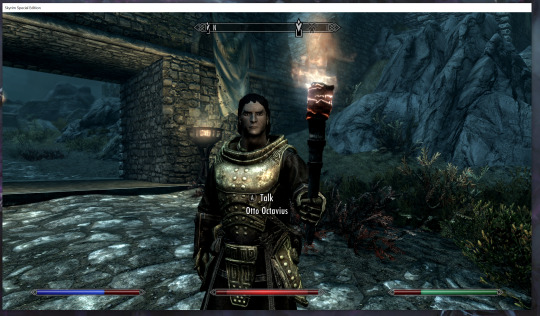
Introducing: Otto Octavius. A Battlemage who hailed from the Imperial City in Cyrodiil.
Name: Otto Octavius Race: Imperial and Nord Gender: Man Age: 50 Birthplace: Imperial City, Cyrodiil Alignment: Lawful Neutral MBTI- INTJ
Sexuality: Sapiosexual / Pansexual
Personality: Charming, ruthless, intensely focused, highly intellectual, driven by curiosity and innovation, disregard for social conventions. Condescending, arrogant, sarcastic, proud, snobbish, stoic, high standards, elegant. When he compliments someone, he offers praise with a touch of condescension, highlighting perceived shortcomings in a sophisticated yet critical manner. Otto can be a very strict and tough teacher, but his precious students mean a great deal to him.
Likes: books, libraries, Dwemer mechanisms, research, experimentation, innovative magic and technology, teaching and mentoring, and puzzle-solving.
Dislikes: ignorance, apathy, inefficiency, mediocrity, overly superficial pursuits, deceit, disrespect, research distractions
Fears: Unforeseen consequences of experiments or studies gone wrong, especially if they endanger his students or threaten Skyrim's magical balance, falling short of his high standards or being perceived as inadequate, getting hurt from vulnerability and emotional exposure due to his guarded nature (especially in forming close personal connections), losing control over situations (such as in experiments and magical endeavors), and losing the people he loves and cares about (especially Rose).
Character Class- Enchanter Skills- Destruction, Restoration, Alteration, Conjuration, Sneak, Enchanting Occupation- Professor of Aetherial Physics and Dwemer Engineering at the College of Winterhold Relationships - Mentors students Sameth and Myvrana Giladren. Collaborates with faculty and scholars including Tarakel, Aicantar, and Calcelmo. Views Calcelmo in the highest regard but also as a rival in the field of Dwemer research. He hates Marcurio. Marcurio's (bisexual disaster) playboy charismatic charm and playful banter clashes with Otto's personality.
Bio: Otto Octavius, an Imperial Battlemage born and raised in Imperial City, Cyrodiil. He absorbed an education deeply rooted in arcane studies under the guidance of his esteemed parents. His mother, an Imperial sorceress, Maria Octavius, and his paternal grandfather, Tobias, a Nord mage, were positive parental figures in his life, while his father, Torbert, a Nord Battlemage, was abusive, negligent, and often drunk. His father used to be very harsh and strict in Otto's magic training, contrasting Tobias' and Maria's methods.
As he matured, Otto's scholarly pursuits expanded beyond norms, delving into the enigmatic realms of Dwemer Engineering and Aetherial Physics. His fascination with Dwemer constructs led him to decipher and comprehend the intricacies of Dwemer machinery, seeking to unravel the secrets behind their enigmatic technologies. His pioneering work in integrating Dwemer principles into contemporary magical and mechanical innovations earned both admiration and skepticism among magical circles, though his intense focus on knowledge often distanced him from personal connections, including love and sex. Despite acclaim in the Imperial Court, Otto felt at odds with its political climate post the Great War. Seeking enlightenment and sanctuary, he ventured to the College of Winterhold in Skyrim, embracing a role as a professor of Aetherial Physics and Dwemer Engineering.
He doesn't want to admit it, but he's a softie when it comes to his precious students and friends.
Otto doesn't fit the conventional image of a muscular Nord hero and harbors occasional insecurities about his weight and appearance.
#doc ock#doctor octopus#alfred molina#doctor octavius#skyrim#Skyrim mods#Skyrim modding#Roleplaying with AI#Doctor Otto Octavius#Otto Octavius#Elder Scrolls
4 notes
·
View notes
Text

LEGAL NAME: Dr. Olivia Octavius
NICKNAME[S]: Liv, Doctor Octopus, Doc Ock
DATE OF BIRTH: March 23rd, 1978
SEX: Transfemale
PLACE OF BIRTH: Schenectady, New York
CURRENTLY LIVING: Hudson Valley, New York
SPOKEN LANGUAGES: English
EDUCATION: M.I.T. (Massachusetts Institute of Technology)
HAIR COLOR: Brown
EYE COLOR: Hazel
HEIGHT: 5'9
WEIGHT: None of your business <3
FAMILY INFORMATION
SIBLING[S]: N/A
PARENT[S]: Torbert Octavius & Mary Octavius
CHILDREN: N/A
PET[S]: N/A
RELATIONSHIP INFORMATION
SEXUAL ORIENTATION: Bisexual
RELATIONSHIP STATUS: Single / verse dependent
SINCE WHEN: Verse dependent
tagged by: @eideticspider (thanks! ^^)
tagging: Uhhh, there's too many of you to tag so whoever wants to!
#❖ᴘᴀʏ ɴᴏ ᴀᴛᴛᴇɴᴛɪᴏɴ ᴛᴏ ᴛʜᴇ ᴡʀɪᴛᴇʀ ʙᴇʜɪɴᴅ ᴛʜᴇ ᴄᴜʀᴛᴀɪɴ: ᴏᴏᴄ#dash game#🐙ᴍʏ ᴇɴᴇᴍɪᴇꜱ ᴄᴀʟʟ ᴍᴇ ᴅᴏᴄ ᴏᴄᴋ: ᴅʀ. ᴏʟɪᴠɪᴀ ᴏᴄᴛᴀᴠɪᴜꜱ
7 notes
·
View notes
Text

"sorry, is this your — is this your property?" torbert asked, rubbing the dirt off on his jeans before holding out a hand. "i'm tobert and i'm really sorry to trespass like that but you have a ghost orchidea right there and it's an extremely rare plant." he hadn't been able to stop himself from studying the specimen. "it's in good conditions, too. you could make some good money out of it. i wouldn't mind paying for it." // @bloodrodeo
5 notes
·
View notes
Text
GLOWZIES Sci-fi comedy horror - free on YouTube soon
‘Earth’s up, dude’ Glowzies is a 2023 sci-fi comedy horror film about a group of military vets and influencers battling glowing zombies. The movie was directed, co-edited and co-produced by Hank Braxtan (Jurassic Hunt; Dragon Soldiers; Snake Outta Compton; Unnatural; Chemical Peel; Blood Effects) from a screenplay co-written with Guy J. Jackson. It was produced by Arielle Brachfeld, Kevin Brooks,…
#2023#Alexandria House#Antuone Torbert#free on YouTube#Glowzies#Hank Braxtan#James Remar#Josie Davis#Michael Dorn#movie film#Ron Carlson#sci-fi comedy horror#trailer
0 notes
Text

Look at this little fuck,torbert jr.....sadly his father was run over by a berkenstock.
0 notes
Text

stars : Courtney Loggins, Ruben Pla, Tarkan Dospil, Joston Theney, Antuone Torbert and Heath C. Heine
director : Hank Braxtan
score 2 out of 4 stars
This wasn't a terrible film. the plot was fairly interesting and the cgi dinosaurs were pretty decent which is rare in these movies. It was let down by some pretty dodgy acting but that was really the only thing lacking for the most part
0 notes

